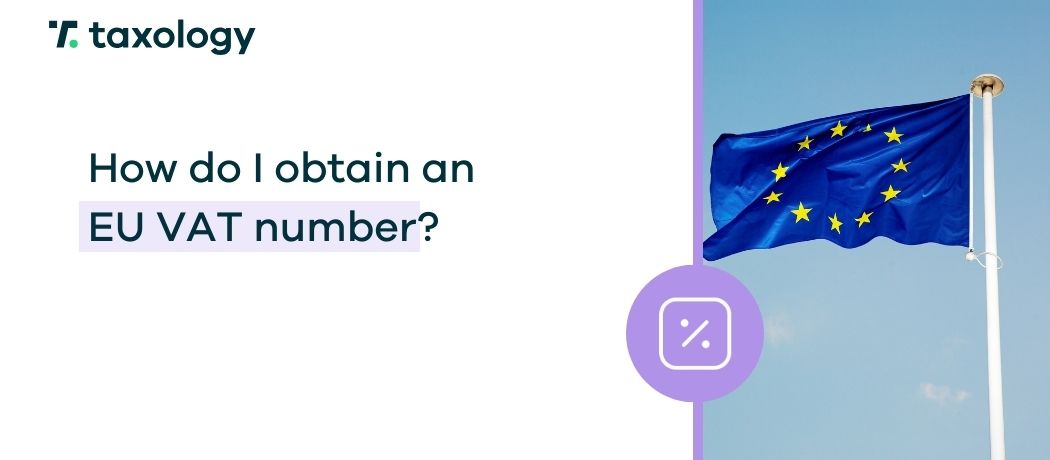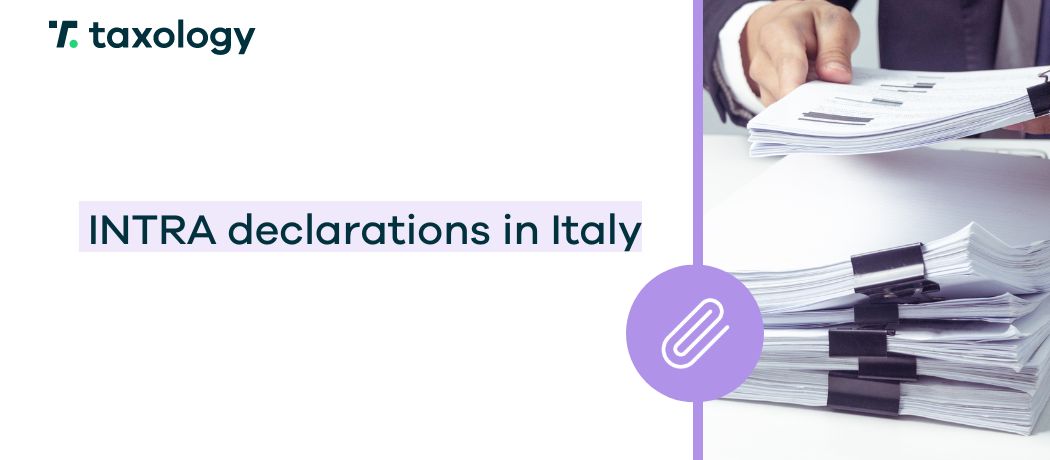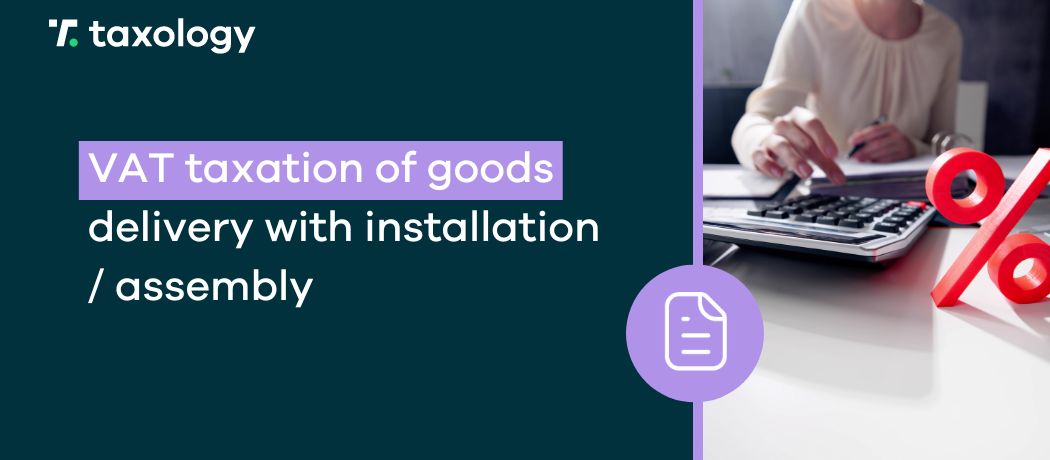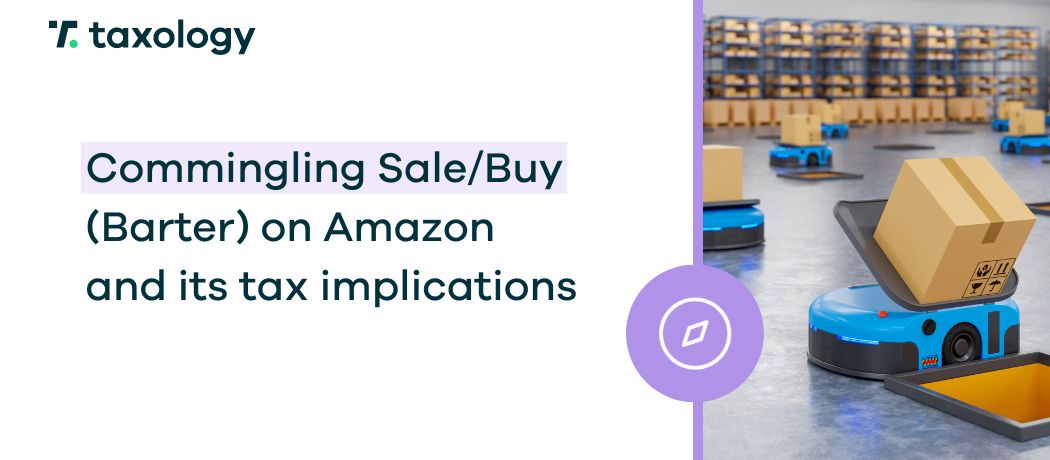Italy ranks as the fourth largest e-commerce market in Europe in terms of value. It is no surprise, then, that it attracts entrepreneurs looking to expand in this direction. However, […]
Read in: 4 minHow do I obtain an EU VAT number?
- Last update: 23.02.2024
- Published: 27.06.2023
- Read in: 5 min
VAT, or value-added tax, is an intricately layered topic. It exhibits variations on a national scale, with each country having its distinct set of regulations. Yet, we mustn’t overlook the European dimension, which encompasses all Member States and governs intra-Community transactions. In this context, the European VAT number is intricately linked—a subject we will delve into more in this article.
From this article you will find out:
- What is an EU VAT number?
- Who needs a European VAT number?
- How to obtain a European VAT number?
- How to register for EU VAT?
- When a EU VAT taxpayer can be removed from the register?
The EU VAT number - what exactly is it?
The EU VAT number, also referred to as the European Tax Identification Number, serves as an identification number for VAT taxpayers. It becomes necessary when conducting intra-Community transactions, specifically referring to the acquisition and supply of goods within the European Union among foreign businesses from different member states.
The EU VAT number plays a pivotal role in identifying VAT taxpayers and regulating tax payments. Moreover, it plays an integral role in the operation of the single market within the European Union, fostering trade between member states and simplifying the monitoring and regulation of cross-border transactions by tax authorities.
Who is required to register for a EU VAT number?
The EU VAT number is obligatory for all active VAT-registered individuals or entities, including those eligible for tax exemptions, who intend to engage in intra-Community transactions. These transactions include:
- Intra-Community acquisition of goods,
- Intra-Community supply of goods,
- Provision of services from EU countries, which are subject to taxation in the purchaser’s country (in this case, Poland),
- Provision of services subject to taxation in the purchaser’s country, which, in this instance, pertains to countries other than Poland.
Additionally, entrepreneurs who meet the criteria for an exemption, meaning their annual domestic sales doesn’t exceed PLN 200,000, while the value of intra-Community goods acquisitions exceeds PLN 50,000 within a fiscal year, are obligated to register for an EU VAT number. Moreover, the duty to register for an EU VAT number arises when Polish entrepreneurs acquire services taxed within Poland and are required to settle the tax there. This obligation also applies when entrepreneurs provide services where the place of tax settlement is the purchaser’s country.

Need EU VAT registration or VAT registration in another country?
We will conduct it for you! All you need to do is contact us and tell us exactly what you need. Our VAT Compliance specialists will do the rest!
Schedule a consultationHow does the EU VAT registration process look like in Poland?
The process of EU VAT registration in Poland involves checking the right boxes on the VAT-R form when applying for VAT registration. For entrepreneurs who are already registered as active VAT taxpayers or enjoying VAT exemption, this registration can be updated by making amendments to the existing VAT-R form.
The VAT-R notification should be directed to the respective head of the tax office and can be submitted through one of three available methods:
- electronically via the e-Deklaracje system or by filing an application for an entry or data changes in CEIDG (for sole proprietorships) through the Tax Portal,
- through conventional mail or correspondence,
- in person by visiting the appropriate tax office.
It’s important to bear in mind that the process of EU VAT registration is cost-free. However, when completing the VAT-R form, it’s essential to choose the correct tax office, and this decision may be influenced by factors like the business’s location, its type, the proprietor’s residence, or the revenue generated by the business.
Additionally, it’s worth emphasising that EU VAT registration should be undertaken before the commencement of the first intra-Community transaction.
What is the format of the EU VAT number?
The EU VAT number has the format of a Tax Identification Number (TIN) and is typically preceded by the prefix ‘PL,’ often referred to as a European TIN.
However, it’s crucial to note that the specific format of the European TIN can vary depending on the country, much like national tax identification numbers. For instance, in Germany, there are two types: the Steuernummer, which comprises 10 or 11 digits in the format 11/222/34567, and the Umsatzsteuer-Identifikationsnummer, consisting of nine digits preceded by the prefix ‘DE’, recognised as the German EU VAT number.
If you require assistance with obtaining an EU VAT number or registering for VAT in a Member State, we can provide the necessary support. Please don’t hesitate to schedule a free consultation with us.
The EU VAT taxpayer vs. obligations
Obtaining an EU VAT registration brings forth a new tax obligation for the taxpayer, specifically related to the submission of the EU VAT return.
For businesses with an EU VAT number, the requirement is to file the EU VAT return monthly. The deadline for doing so is the 25th day of the month following the accounting period, which corresponds to the month in which the intra-Community transactions took place.
Exclusion from EU VAT
It’s important to note that an EU VAT taxpayer can have their European VAT number revoked, but this can only happen under specific circumstances when a decision is made by the Head of the Tax Office.
One reason for the removal of an entrepreneur from the EU VAT register is if they, as an active VAT taxpayer, fail to submit VAT returns for a period of six months.
Another situation that can lead to the removal from the EU VAT register arises when an active VAT taxpayer submits nil VAT returns for a continuous three-month period, indicating that no intra-Community transactions took place during that period.
Additionally, the Head of the tax office may have grounds to remove a taxpayer from the EU VAT register if the taxpayer fails to meet the obligation of submitting the VAT-EU recapitulative statement for three months, despite submitting JPK_VAT declarations that clearly indicate intra-Community transactions.
How to obtain an EU VAT number? - Summary
In summary, the EU VAT number holds significant importance for businesses operating within the European Union. It’s a mandatory requirement for companies involved in commercial transactions within the EU and serves as a crucial tool for tax authorities to monitor tax payments effectively.
EU VAT registration is necessary for active taxpayers or those eligible for exemptions who plan to engage in transactions with foreign partners within the European Union.
The procedure for EU VAT registration in Poland involves submitting a VAT-R form to the tax office, and the application can be directed to the relevant tax office for processing.
If you’re a VAT taxpayer and you’re currently conducting or planning to engage in business activities with partners from the European Union, you may require assistance with various VAT-related matters. These include, but are not limited to, VAT OSS, local VAT registrations, settlements, or declarations. Our team of VAT Compliance specialists is well-equipped to handle all these matters, and all you need to do is schedule a free consultation.
In the meantime, if you wish to explore more of our articles, you can check out “What is VAT IOSS?” and “What exactly is SPP (the split payment mechanism)?“.




